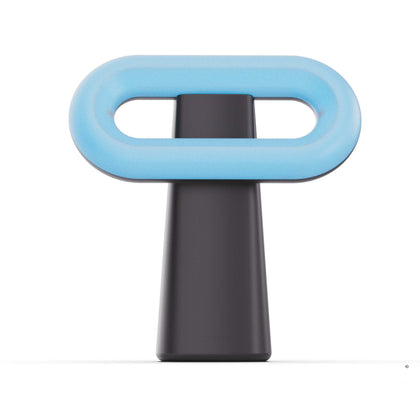
Circadian alignment is key for a healthy immune system
|
|
Time to read 3 min
As immunity research continues to grow, it’s become clear that a disrupted circadian rhythm puts your body at a disadvantage. I sat down with Dr Nina Li, OSIN’s Head of Science, to understand why an aligned circadian rhythm is crucial for maintaining a robust immune system.
The circadian rhythm regulates most of the body's functions, and the immune system is no exception,” Dr Li said.
She referenced a review of several studies, published in Nature in 20181 that found that most of our immune cells express clock genes. According to the paper, the responsiveness, localisation, mobility, recruitment, and activity of immune cells are under circadian clock control. In other words, the timing of our body clock influences how we respond to infection.
“Beginning in the 1960s, immunologists realised that infections at different times of day affected the severity of the disease2. However, there wasn’t much research on the circadian rhythm’s influence on immunity until the early 2010s, when we gained a much better understanding of the circadian clock mechanism,” Dr Li said.
Circadian disruption leaves individuals more vulnerable
The immune system is made up of cells and organs that protect our body from outside invaders that can cause infections and disease. It can also help us eliminate abnormal pre-cancerous cells and cancerous cells from growing out of control. But a recent study found that 87% of working adults suffer some degree of social jet lag3, a type of long-term circadian disruption, mainly due to limited access to natural light. I asked what kind of consequences this might have on immunity.
“Circadian disruption can cause many health issues. It can cause inflammation and compromise the immune system4, leaving individuals more vulnerable to getting sick.5”
A study published in The Journal of Immunology found that chronic circadian misalignment caused a significantly shorter lifespan in mice6. Researchers used timed light exposure to intentionally disrupt the circadian rhythms of the mice: an 8-hour delay every 7 days and an 8-hour advance every 4 days. The mortality rate of this group was 20 times higher than the control group (LD 12h:12h) and 5.29 times higher than the group of adjustive phase shifts mice (which gives the mortality rate of adjustive phase shifts 3.78 times higher than the control group).
Another animal study showed that the inflammatory response was dysregulated by long-term circadian disruption. They found that mice with a regular circadian rhythm were 7 times more likely to survive when facing critical infections than those who were misaligned.
"But a recent study found that 87% of working adults suffer some degree of social jet lag, a type of long-term circadian disruption, mainly due to limited access to natural light."
Researchers have not tried to recreate these results in the lab with humans for ethical reasons. But Dr Li pointed out that many night-shift workers have inadvertently disrupted their circadian rhythms in a way similar to the studies. As such, night-shift workers have attracted the attention of many scientists.
She highlighted a study published last year, which compared the immune response to a vaccine among night-shift workers against day workers as control groups7. They found that the night shift workers have a smaller immune response compared to day workers. Dr Li explained that these findings indicate that, as a result of circadian disruption, it takes longer to mobilise immune cells, resulting in a longer overall recovery time. It may also mean that the night-shift workers may not receive the full benefit of a vaccine.
Dr Li said that while more research needed to be done, she had no doubt that the circadian disruption in humans prevents the immune system from functioning as well as it should. That means many of us can strengthen our immunity simply by rediscovering our body clock's natural timing. Innovative ways to align people’s circadian rhythms could prove a valuable tool for improving public health.

Night shift workers have a smaller immune response compared to day workers.
References
- Scheiermann, C., Gibbs, J., Ince, L. & Loudon, A. Clocking in to immunity. Nat. Rev. Immunol. 18, 423–437 (2018).
- Halberg, F., Johnson, E. A., Brown, B. W. & Bittner, J. J. Susceptibility Rhythm to E. coli Endotoxin and Bioassay. Proc. Soc. Exp. Biol. Med. 103, 142–144 (1960).
- Roenneberg, T. & Merrow, M. The Circadian Clock and Human Health. Curr. Biol. 26, R432–R443 (2016).
- Sletten, T. L. et al. Health consequences of circadian disruption. Sleep 43, zsz194 (2020).
- Haspel, J. A. et al. Perfect timing: circadian rhythms, sleep, and immunity — an NIH workshop summary. JCI Insight 5, e131487 (2020).
- Castanon-Cervantes, O. et al. Dysregulation of Inflammatory Responses by Chronic Circadian Disruption. J. Immunol. 185, 5796–5805 (2010).
- Ruiz, F. S. et al. Night shift work and immune response to the meningococcal conjugate vaccine in healthy workers: a proof of concept study. Sleep Med. 75, 263–275 (2020).

